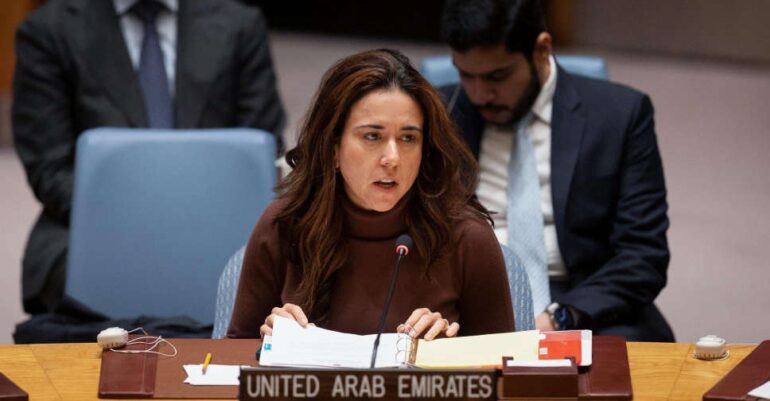TL;DR:
- UAE announces the launch of a groundbreaking digital response platform.
- The platform will aid disaster-affected countries in communicating their humanitarian needs efficiently.
- It leverages AI, machine learning, and geospatial tools to enhance aid delivery.
- The UAE emphasizes collaboration with governments, the private sector, and humanitarian organizations.
- The move comes as a response to the evolving needs of the humanitarian system.
- UAE, a major global humanitarian donor, highlights its vital role in international humanitarian efforts.
- Over the last five years, the UAE private sector has contributed over USD 250 million to humanitarian causes.
Main AI News:
In a groundbreaking development, the United Arab Emirates (UAE) has unveiled plans to launch a state-of-the-art digital response platform aimed at revolutionizing aid efforts in disaster-stricken regions across the globe. This announcement was made during a pivotal United Nations Security Council open debate titled “Maintenance of international peace and security: Advancing public-private humanitarian partnership.”
The innovative platform is poised to become a lifeline for disaster-affected nations, offering them a streamlined channel to communicate their urgent humanitarian needs to the global community. By embracing cutting-edge technologies such as Artificial Intelligence (AI), machine learning, and geospatial tools, the UAE’s digital response platform will empower nations to articulate precisely what assistance is required and where it’s needed most. Moreover, it will operate within a robust and secure framework to safeguard data integrity, addressing one of the paramount concerns in the digital age.
Her Excellency Ambassador Lana Nusseibeh, the Permanent Representative of the UAE to the United Nations, underscored the urgent need for such a transformative approach. “We are facing a humanitarian system in crisis. And the architecture of the past can no longer keep pace with the crises of the present,” she emphasized. Ambassador Nusseibeh added, “The UAE has been developing a digital platform to support governments’ ability to better harness international support in the wake of natural disasters. We look forward to collaborating with governments, the private sector, and humanitarian organizations in the coming months to launch a new tool that will turbocharge our crisis response capabilities.“
This significant announcement was made during a UN Security Council meeting presided over by His Excellency Igli Hasani, Minister for Europe and Foreign Affairs of the Republic of Albania, which currently holds the presidency for the month of September.
The UAE has consistently been a leading global donor in the humanitarian sphere. Situated in Dubai, the International Humanitarian City stands as the world’s largest humanitarian logistics hub, accommodating 62 humanitarian organizations, including major UN agencies, alongside 17 private sector companies. The UAE’s world-class aviation and logistics sectors, including renowned entities like Etihad, Emirates, and DP World, play pivotal roles in supporting international humanitarian endeavors. Collaborating closely with the United Nations and other partners, these entities ensure that vital aid reaches those most in need. Over the past five years, the UAE’s private sector has contributed a staggering USD 250 million to humanitarian initiatives worldwide.
Conclusion:
The UAE’s introduction of a cutting-edge digital response platform underscores its commitment to revolutionizing humanitarian aid efforts. By integrating advanced technologies and fostering collaboration, the UAE aims to address the evolving challenges in the humanitarian sector, potentially setting a new benchmark for global humanitarian response initiatives. This move is poised to create opportunities for tech companies and organizations specializing in disaster relief, positioning them to play a significant role in reshaping the future of humanitarian assistance.

